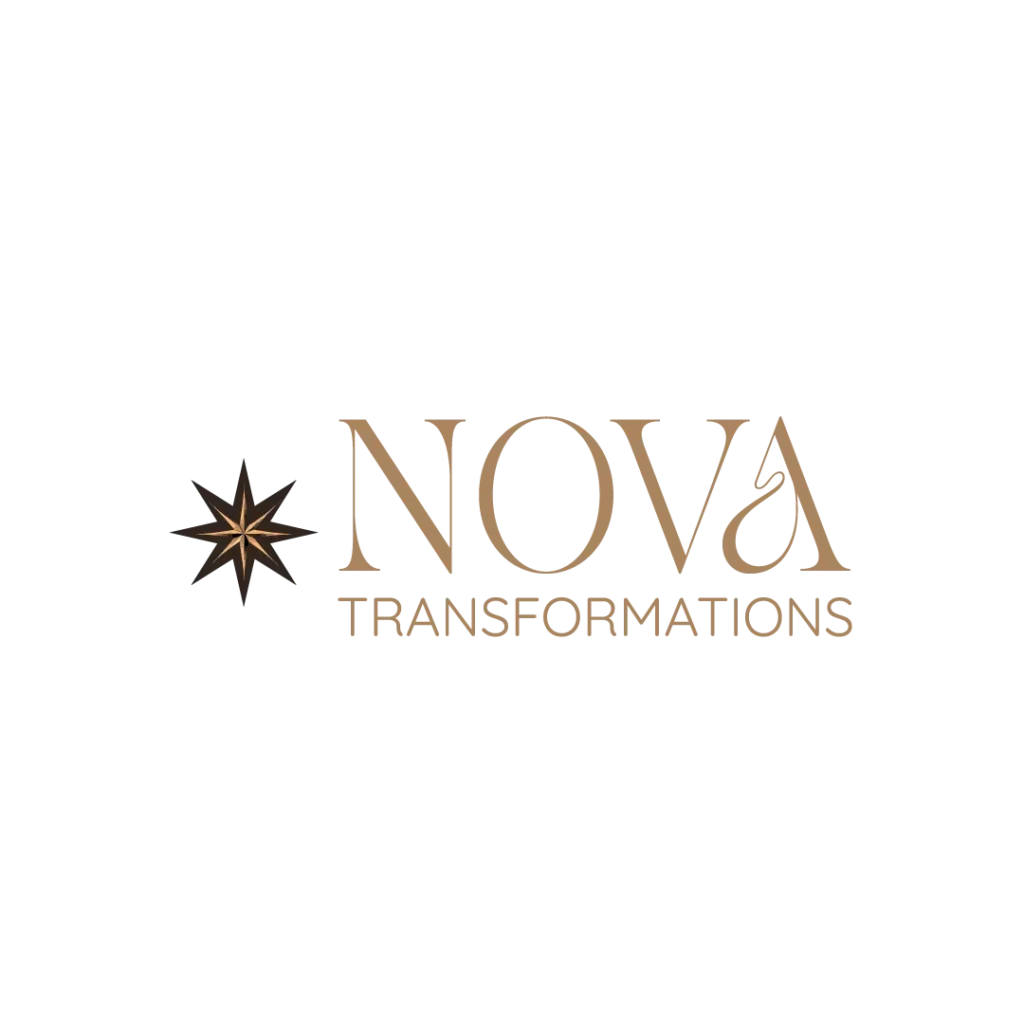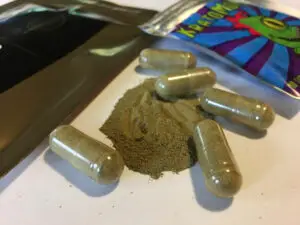Why Choose Nova Transformations
Choosing the right treatment for cocaine addiction is crucial for successful recovery. Nova Transformations offers programs that are designed to cater to your specific needs and circumstances.
Comprehensive Treatment Programs
At Nova Transformations, the focus is on creating comprehensive treatment programs that address both the physical and psychological aspects of cocaine addiction. Comprehensive support during the detoxification process is essential as mental cravings can be just as powerful as physical symptoms. This makes medical support and interventions necessary to ease discomfort and prevent relapse (Arrowwood Addiction Treatment Center).
The programs integrate a variety of therapeutic methods tailored to meet individual needs, ensuring a holistic approach to recovery. Here is a brief overview of available treatment options:
| Treatment Option | Description |
|---|---|
| Cognitive Behavioral Therapy (CBT) | Usually effective as a standalone treatment or part of a combination strategy for substance use disorders (NCBI). |
| Contingency Management (CM) | Uses voucher-based reinforcement to encourage patients to achieve abstinence from cocaine. |
Patients benefit from structured therapy sessions, family support therapy, and access to other resources to enhance their recovery experience.
Evidence-Based Approaches
Nova Transformations emphasizes evidence-based approaches in their treatment protocols. Research shows that therapies like cognitive behavioral therapy and contingency management are grounded in scientific evidence, which supports their effectiveness in treating cocaine use disorders.
Specifically, contingency management has proven to be particularly effective in promoting initial abstinence from cocaine among patients by rewarding them for reaching therapeutic goals (PubMed Central). This method not only motivates individuals to stay on track but also reinforces positive changes in behavior.
In addition to these evidence-based methods, Nova Transformations incorporates a range of complementary therapies, allowing for a well-rounded approach to cocaine addiction treatment. Whether you or a loved one are seeking a start to recovery or looking for sustained support, Nova Transformations offers the resources needed to achieve lasting change. For more information on related treatment options, explore our resources on alcohol addiction treatment and heroin addiction recovery.
Understanding Cocaine Addiction
Cocaine addiction is a serious issue that affects many individuals and their loved ones. Understanding the impact of cocaine use and the factors contributing to addiction can help you or someone you care about receive the cocaine addiction treatment necessary for recovery.
Impact of Cocaine Use
Cocaine use has widespread implications, with 1.8 million Americans aged 12 or older reporting cocaine use in the past month as of 2021 (American Addiction Centers). The methods of use vary, with some individuals opting to smoke crack or inject cocaine. These methods create the most rapid and intense euphoric effects, which contribute to the cycle of addiction.
The addictive nature of cocaine can be attributed to its effects on dopamine activity in the brain. This neurotransmitter significantly influences pleasure and reward, reinforcing behaviors associated with drug use. Consequently, the risk of developing an addiction increases, making cocaine one of the more challenging substances to overcome.
| Impact Factor | Statistics |
|---|---|
| Monthly Users | 1.8 million (2021) |
| First-Time Users | 478,000 (2021) |
Factors Contributing to Addiction
Several factors play a role in cocaine addiction. These can include genetics, psychological issues, and environmental influences. Individuals who have experienced trauma or those with co-occurring mental health disorders may be more predisposed to substance abuse dual diagnosis mental health and addiction.
In 2021, approximately 478,000 individuals aged 12 years or older used cocaine for the first time. This statistic underscores the growing issue of cocaine misuse in the United States and emphasizes the need for effective treatment options that encompass education, counseling, and various therapeutic approaches that facilitate successful recovery.
The time to act is now. If you or a loved one struggles with cocaine addiction, seeking help through programs at Nova Transformations can provide the support needed to move toward a healthier, addiction-free life.
Detoxification and Its Importance
Detoxification is a critical first step in the journey to overcoming cocaine addiction. It involves eliminating the drug from the body while managing the uncomfortable withdrawal symptoms that often accompany the process. This phase is essential for preparing individuals for long-term recovery.
Cocaine Detoxification Process
The cocaine detoxification process typically begins with a comprehensive assessment by healthcare professionals. This assessment helps to identify the level of dependence and tailor a detox plan to meet individual needs. During this period, patients may experience various withdrawal symptoms such as fatigue, depression, and cravings. Medical supervision is crucial to ensure safety and comfort throughout the detoxification.
The detox process can vary in duration but generally lasts from a few days to a couple of weeks, depending on individual factors. It often includes:
| Stage | Duration | Focus |
|---|---|---|
| Initial Assessment | 1 day | Comprehensive evaluation of dependence and health status |
| Acute Detox | 3-14 days | Managing withdrawal symptoms under medical supervision |
| Transition to Treatment | Ongoing | Preparing for the next steps in addiction treatment and recovery |
Support Systems in Detox
Adequate support systems during cocaine detoxification are crucial, as both mental and physical cravings can be powerful. Medical support from qualified professionals, including doctors and nurses specializing in addiction treatment, ensures effective monitoring of physical health and withdrawal symptoms. This support is essential in providing medications to alleviate discomfort and prevent potential relapses.
Comprehensive support may include:
- Medical Oversight: Continuous monitoring of health status and assessment of withdrawal symptoms.
- Counseling Services: Providing psychological support to cope with emotional challenges.
- Therapeutic Interventions: Employing evidence-based therapies, such as Contingency Management, can help reinforce positive behaviors and promote initial abstinence.
- Family and Peer Support: Involvement of family members and peer support networks enhances motivation and accountability during detox.
Building a robust support system helps individuals navigate the challenges of detoxification and sets a solid foundation for subsequent treatment options in their journey to recovery. If you’re interested in ongoing treatment, check out our related programs, such as heroin addiction recovery and opioid addiction program.
Treatment Options for Cocaine Addiction
When considering treatment for cocaine addiction, it is essential to combine various approaches that address both the physiological and psychological aspects of the disorder. At Nova Transformations, you can explore a range of effective options tailored to your unique circumstances.
Medications in Cocaine Treatment
Currently, treatments for cocaine use disorder (CUD) face challenges, as many traditional medications have proven ineffective. However, promising research is focused on developing new pharmacological agents that can enhance the efficacy of psychosocial treatments. While there are no approved medications specifically for CUD, some promising options have emerged from clinical trials.
| Medication Type | Description |
|---|---|
| Long-acting stimulants | Includes long-acting dextroamphetamine and mixed amphetamine salts, showing potential in treating CUD. |
| Topiramate | An anticonvulsant that has shown potential efficacy in controlled clinical trials for CUD. (PubMed Central) |
Psychosocial Treatment Approaches
Psychosocial treatments play a vital role in the recovery process for cocaine addiction. Various strategies have been identified as effective in promoting abstinence and supporting long-term recovery. Some key approaches include:
| Treatment Type | Description |
|---|---|
| Contingency Management (CM) | This approach uses voucher-based reinforcement, rewarding patients with vouchers for achieving therapeutic goals such as drug abstinence. (PubMed Central) |
| Group Counseling | Involves support from peers and professionals to discuss challenges and strategies in recovery. |
| Individual Drug Counseling | Focuses on personalized support addressing specific needs and challenges related to addiction. |
| Cognitive Behavioral Therapy (CBT) | A widely recognized approach that helps modify negative thought patterns and behaviors associated with substance use. |
| Motivational Interviewing (MI) | A collaborative conversation style that enhances motivation towards change. |
Intensive outpatient therapy (IOT) combines various forms of therapy, including group, individual, and family counseling. It has demonstrated effectiveness comparable to inpatient treatment, making it a strong option for many individuals seeking help.
If you or a loved one is seeking comprehensive assistance with cocaine addiction treatment, Nova Transformations provides various programs and options designed to facilitate recovery and improve overall well-being. For additional information on addiction treatment services, consider exploring our options for alcohol addiction treatment and heroin addiction recovery.
The Role of Behavioral Therapies
Behavioral therapies play a crucial role in the treatment of cocaine addiction. These therapeutic practices help you understand the underlying issues that contribute to substance use and equip you with the tools to manage cravings and triggers effectively. Two of the most prevalent behavioral therapies used in cocaine addiction treatment are Cognitive Behavioral Therapy (CBT) and Motivational Interviewing (MI).
Cognitive Behavioral Therapy (CBT)
Cognitive Behavioral Therapy (CBT) is highly regarded for its effectiveness in treating substance use disorders, including cocaine addiction. Research indicates that CBT has been successful both as a standalone treatment and as part of a combination treatment strategy. Numerous large-scale trials and quantitative reviews support its efficacy in addressing alcohol and drug use disorders.
CBT focuses on identifying cognitive and environmental triggers related to substance use. The therapy emphasizes the development of healthier coping strategies, which may include:
- Setting achievable goals
- Utilizing social support networks, like Alcoholics Anonymous (AA)
- Learning effective communication skills
- Engaging in various forms of exercise to avoid triggers
This goal-oriented and practical approach fosters collaboration between you and your therapist, addressing individual needs and improving quality of life. Given that CBT often targets comorbid issues such as anxiety and depression, it can provide a more comprehensive treatment experience.
CBT is typically covered by insurance, including through the Affordable Care Act. This legislation mandates coverage for mental health and substance use disorders, ensuring you have access to necessary treatment services (American Addiction Centers).
Motivational Interviewing (MI)
Motivational Interviewing (MI) is another effective behavioral therapy utilized in cocaine addiction treatment. This client-centered approach helps strengthen your motivation to change by exploring and resolving any ambivalence towards recovery. MI involves engaging in an empathetic dialogue that promotes self-discovery and reinforces your desire to overcome addiction.
Through MI, you can explore your own reasons for wanting to quit and set personalized goals for your recovery journey. This technique not only enhances self-efficacy but also fosters commitment to change by helping you recognize the discrepancies between your current behaviors and long-term goals.
MI can be particularly beneficial during the early stages of treatment, when ambivalence may be most pronounced. Research supports the effectiveness of MI in enhancing treatment retention and promoting better outcomes for individuals struggling with various substance use disorders.
Behavioral therapies, particularly CBT and MI, are vital components of a well-rounded cocaine addiction treatment plan. These therapies not only address the root causes of addiction but also equip you with the necessary skills to maintain long-term recovery. If you’re seeking comprehensive treatment for cocaine addiction, Nova Transformations offers specialized programs that integrate these effective therapeutic approaches. For more information on our services, you can visit our page on alcohol addiction treatment and other substance-specific programs.
Support Systems for Recovery
Importance of Family Support
Family support plays a critical role in the recovery journey for those seeking cocaine addiction treatment. Supportive family relationships that encourage reduced substance use are associated with a decreased risk of relapse after treatment. Studies show that abstinence-specific familial support can significantly enhance the likelihood of maintaining sobriety from cocaine, making it essential for families to actively engage in their loved one’s recovery process.
Involving family members in treatment can lead to improved outcomes. Here are some key benefits of family support in recovery:
| Benefits of Family Support | Description |
|---|---|
| Enhanced Emotional Support | Family members provide encouragement, helping individuals feel less isolated. |
| Accountability | Supportive families hold their loved ones accountable for their recovery efforts. |
| Reduced Stress | Family support can decrease anxiety and stress, leading to a healthier recovery environment. |
| Active Participation | Engaging family in therapy sessions can improve communication and healing. |
By fostering a supportive environment, families can contribute to a stronger foundation for recovery. Consider exploring family support therapy addiction as a mechanism to enhance this involvement.
Peer Support Networks
In addition to family support, peer support networks are essential for successful recovery. Participation in groups like 12-Step programs creates sober, supportive environments linked to better treatment outcomes for individuals with cocaine dependence. Studies indicate that the presence of supportive peers yields better results than friendships that endorse continued substance use (NCBI). These peer groups help members share their experiences, struggles, and victories, fostering a sense of community.
Here are some advantages of engaging in peer support networks:
| Advantages of Peer Support | Description |
|---|---|
| Shared Experience | Members can relate and understand each other’s challenges, creating a sense of belonging. |
| Motivation | Support from peers helps individuals stay motivated in their recovery process. |
| Long-term Benefits | Being part of recovery networks has been shown to support long-term abstinence and improve engagement in treatment (NCBI). |
| Connection | Building relationships with others in recovery can help reduce feelings of isolation and loneliness. |
Engaging in mutual aid groups promotes connections that enhance recovery. Consider connecting with peer support rehab options to find programs that align with your or your loved one’s needs.
By utilizing both family support and peer networks, individuals in recovery can create a robust support system crucial for overcoming cocaine addiction.








